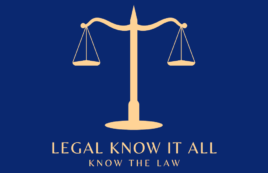The Legal Landscape of CBD: A Brief Overview
The legal status of CBD has been a topic of much debate and confusion, especially given the compound’s complex relationship with marijuana. While CBD is a non-psychoactive compound found in the cannabis plant, it’s legality varies from state to state and federally.
The Farm Bill and CBD
The 2018 Farm Bill was a significant milestone for CBD in the United States. It legalized hemp-derived CBD products on a federal level, as long as they contain less than 0.3% THC. However, the Food and Drug Administration (FDA) has not yet approved CBD for medicinal use, except for the prescription drug Epidiolex, which treats certain forms of epilepsy.
State Laws and Regulations
Even though hemp-derived CBD is legal on a federal level, state laws can differ significantly. Some states have fully embraced CBD, allowing for its use in food, beverages, and dietary supplements. Others have stricter regulations, limiting CBD to medicinal use only. It’s crucial to be aware of the laws in your state before purchasing or using CBD products.

International Laws
If you’re considering traveling with CBD, it’s essential to know that laws can vary widely from country to country. While some nations have liberal CBD laws, others have strict prohibitions against the compound. Always research the legal status of CBD in your destination country to avoid any legal complications.
📚 Dive Deeper into the Legal Landscape of CBD 📚
For those looking to get a more detailed understanding of the legal intricacies surrounding CBD, the eBook “CBD Power: A Comprehensive Guide to Unlocking the Benefits of CBD” is an invaluable resource. It offers a thorough breakdown of CBD’s legal status, its history, and what the future may hold.
👉 Get your hands on this comprehensive guide now! 👈
Understanding the legal landscape of CBD is crucial for both consumers and businesses. While the compound has gained significant traction and acceptance, it’s essential to stay informed about the evolving laws and regulations. Equip yourself with the knowledge you need to navigate the complex world of CBD confidently.
Navigating Federal Agencies
Another layer of complexity in the legal landscape of CBD is the role of federal agencies. While the Farm Bill legalized hemp-derived CBD, the FDA still has the authority to regulate products containing cannabis or cannabis-derived compounds. This means that while you can buy CBD products, companies are not yet allowed to make specific health claims about them.

The DEA’s Stance
The Drug Enforcement Administration (DEA) also plays a role in CBD’s legal status. According to the DEA, CBD is still classified as a Schedule I controlled substance. However, as long as the CBD product adheres to the Farm Bill’s regulations (i.e., it’s derived from hemp and contains less than 0.3% THC), it is generally considered legal.
Medical Marijuana and CBD
In states where medical marijuana is legal, CBD derived from marijuana plants is also considered legal. However, these products may contain higher levels of THC, and therefore may not be legal in states where only hemp-derived CBD is permitted. Always check the THC content and the source of the CBD when purchasing these products.
The Importance of Lab Testing
Given the varying levels of regulation, it’s crucial to purchase CBD products that have been third-party lab tested. This ensures that you’re getting a product that meets legal guidelines and is free from contaminants.
🌟 Your Go-To Guide for All Things CBD 🌟
If all of this sounds confusing, don’t worry. The eBook “CBD Power: A Comprehensive Guide to Unlocking the Benefits of CBD” covers all these topics and more, making it your go-to guide for understanding the legal landscape of CBD.
👉 Grab your copy today and become a CBD expert! 👈
The legal landscape of CBD is complex and ever-changing. While strides have been made to make the compound more accessible, it’s crucial to stay updated on both federal and state laws, especially if you’re considering using CBD for medicinal purposes. And for those who want to dive deeper, the eBook mentioned above is an excellent resource to have in your arsenal.
Common Questions and Answers About CBD’s Legal Landscape
Is CBD Legal in All 50 States?
While hemp-derived CBD is federally legal, state laws can vary. Some states have specific restrictions on CBD, so it’s essential to check your state’s laws before making a purchase.
Can I Travel with CBD?
Traveling with CBD can be tricky. While it’s generally okay to travel with hemp-derived CBD within the United States, international laws vary widely. Always check the laws of the country you’re traveling to.
Can I Give CBD to My Pets?
Yes, many people give hemp-derived CBD to their pets. However, it’s crucial to consult with a veterinarian for proper dosing and to ensure it won’t interact with any medications your pet may be taking.
Do I Need a Prescription for CBD?
For hemp-derived CBD, a prescription is generally not needed. However, some states require a medical card for CBD products with higher levels of THC.
Will CBD Show Up on a Drug Test?
Most standard drug tests are designed to detect THC, not CBD. However, some CBD products may contain trace amounts of THC that could potentially show up on a drug test.
🌟 Want to Know More? 🌟
If you have more questions or want a detailed breakdown of CBD’s legal status, medical uses, and more, the eBook “CBD Power: A Comprehensive Guide to Unlocking the Benefits of CBD” is your ultimate resource.
👉 Get your copy now and clear up all your CBD questions! 👈
Navigating the world of CBD can be confusing, but it doesn’t have to be. With the right information and resources, you can make informed decisions about using CBD. And for those who want to become experts on the subject, the eBook is an invaluable tool.
As an Amazon Associate we earn from qualifying purchases through some links in our articles.



